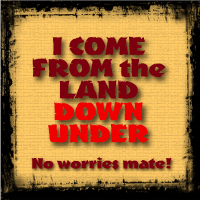"Language is not 'just words'. It enables us to establish our selves, and
ourselves, as individuals and as members of groups; it tells us how we are connected to one another, who has power and who doesn't."
 Language is how we define ourselves and our identity, and it is very powerful. How you phrase a sentance can either put the speaker in a dominant or submissive role. This is shown with the example of a cat getting stepped on, where the offender can appologize nicely and take the blame ("I'm sorry"), or turn the blame onto someone else ("Why was the cat there?")
Language is how we define ourselves and our identity, and it is very powerful. How you phrase a sentance can either put the speaker in a dominant or submissive role. This is shown with the example of a cat getting stepped on, where the offender can appologize nicely and take the blame ("I'm sorry"), or turn the blame onto someone else ("Why was the cat there?") One way of getting this language power is by creating public language. With the Anita Hill/Clarence Thomas sexual harassment case, women created a motto "They just don't get it." It gave women interpretive power to decide what "it" is and how you "get" it. Also, the issue of sexual harassment was forced into public notice. It is accepted now, and when I applied to work at a grocery store, they even showed a video on what was considered sexual harassment.
There is a lot of "political correctness" in language these days. Feminists argue against the use of "man" as equal meaning to "human being," making "women" seem less human. They've gone so far as to ask for a gender neutral Bible. Instead of "mailman" they want "mailwoman" or "mailperson." Or to take gender completely out, "mailcarrier." I personally do not mind the use of "man" and consider it to include women. In spanish "ellos" means them, male, and "ellas" means them, female. But if there is a group of men and women together, "ellos" would be used. It is just understood, under the masculine term. The issue in political correctness is replacing somewhat OFFENSIVE words with others that are not.
"The Language War" quoted
"In the name of 'sensitivity' to others and under pain of being denounced as a sexist or racist, the postmodern radicals require everyone around them to adhere to their own codes of speech and behavior."Also,
"P.C. attempts to redistribute power from the priviledged class...to the oppressed masses."
 They say "African American" rather than "negro" and "mentally challenged" instead of "retarded." This created a renaming of many things to show how ridiculous it can get, with "follically challenged" (just say it--bald), or "vertically challenged" (short.) Apparently Australia can't use the word "mate" in public anymore.
They say "African American" rather than "negro" and "mentally challenged" instead of "retarded." This created a renaming of many things to show how ridiculous it can get, with "follically challenged" (just say it--bald), or "vertically challenged" (short.) Apparently Australia can't use the word "mate" in public anymore."What next? banning 'no worries' so as not to offend the worried, or banning 'Down Under' So as not to offend those of us who live in the 'Up Over.'"
That's just culture destroying.
"Politically correct" reminds me of a song by Gretchen Wilson, "Politically Uncorrect" (Yes, to you grammar police out there, even the title is incorrect.) Her video reminds us how it is  definately not politically correct to talk about God, among other things. ("Nothing wrong with the Bible," the songs says, which those P.C. feminists obviously didn't agree with.)
definately not politically correct to talk about God, among other things. ("Nothing wrong with the Bible," the songs says, which those P.C. feminists obviously didn't agree with.)
We can't say "Merry Christmas" anymore, because we might OFFEND someone who celebrates Hanukkah, Kwanzaa, Festivus, Winter-een-mas, you name it. Instead we are supposed to say "Happy Holidays" or "Season's Greetings."
Keep that in mind--December is approaching, mate.
1 comment:
Good points, from someone who lives "up over." Happy Thanksgving to the ENG 230 class.
Post a Comment